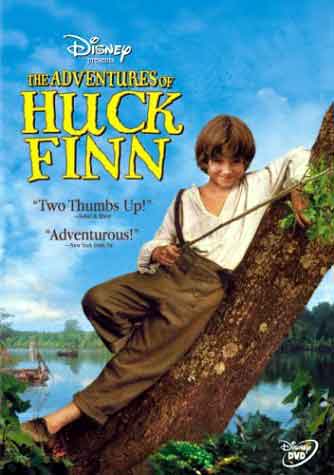Assignments, enrichment, reminders, tips and sneaky little tactics for Costal & Sera's course.
Sunday, March 24, 2013
Thursday, March 21, 2013
Journal #39
Choose one of the two journal prompts:
1.) The elopement of Harney and Sophia is reminiscent of
the plot of Romeo and Juliet. What other characteristics and elements of
this episode resemble Shakespeare’s play?
The feud has been called a satire of the Civil War as well. In a short writing, argue for or against the
effectiveness of this satire.
2.) In the quotation provided below, Huck exhibits
symptoms of what is now called PTSD, or post-traumatic stress disorder. In a short writing argue for or against this
diagnosis, considering how many deaths Huck has encountered by Chapter 18.
“I ain’t a-going to tell all that happened—it would
make me sick again if I was to do that.
I wished I hadn’t ever come ashore that night to see such things. I ain’t ever going to get shut of them—lots
of times I dream about them” (116).
Remember study for the vocabulary quiz tomorrow and read Chapter 19 of Huck Finn.
Sunday, March 17, 2013
Huckleberry
READ!
Continuing reading and taking notes on Huck Finn through chapter 18 to be completed by Tuesday. Be ready to discuss chapters 15 & 16 in depth on Monday.
Continuing reading and taking notes on Huck Finn through chapter 18 to be completed by Tuesday. Be ready to discuss chapters 15 & 16 in depth on Monday.
Monday, March 11, 2013
The Picaresque Novel
For those who missed class today (Monday, March 11th) we began discussing the characteristics of a Picaresque novel or narrative and how Huck Finn meets the criteria. Below you will find the details of a Picaresque novel. Continue reading Huck Finn you should have through chapter 16 (pg. 65) by Thursday.
Picaresque Novel:
The picaresque novel (Spanish: "picaresca," from "pícaro," for
"rogue" or "rascal") is a popular sub-genre of prose fiction which
is usually satirical and
depicts, in realistic and often humorous detail, the adventures of
a roguish hero of
low social class who lives by his wits in a corrupt society. This
style of novel originated in sixteenth century Spain and
flourished throughout Europe in the seventeenth and eighteenth
centuries. It continues to influence modern literature.
Seven qualities distinguish the picaresque novel or
narrative form. All or some of these may be employed for effect by the author. (1) A
picaresque narrative is usually written in first person as an autobiographical
account. (2) The main character is often of low character or social
class. He or she gets by with wit and rarely deigns to hold a job. (3) There
is no plot. The story is told in a series of loosely
connected adventures or episodes. (4) There is little if any
character development in the main character. Once a picaro, always a picaro.
His or her circumstances may change but rarely result in a change of heart. (5) The
picaro's story is told with a plainness of language or realism. (6) Satire is a
prominent element. (7) The behavior of a picaresque hero or heroine
stops just short of criminality. Carefree or
Saturday, March 9, 2013
HUCK FINN
Keep reading y'all...
For Monday read up to and including Chapter 11.
Click here to view the original illustrations that accompanied the novel.
For Monday read up to and including Chapter 11.
Click here to view the original illustrations that accompanied the novel.
Monday, March 4, 2013
Huck Finn: Journey Underway
 |
| Young Elijah Wood as Huck! |
Please READ:
Up to and including chapter 5 for Wednesday's class.
Up to and including chapter 8 for Friday's class.
Also the vocabulary quiz will now be on Thursday.
New words:Surreptitious- secret; stealthy
Bowdlerize- to remove offensive passages of a play, novel, etc.
Victuals- food
Subscribe to:
Comments (Atom)

